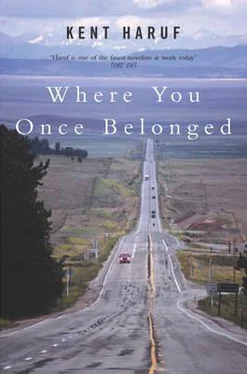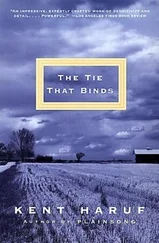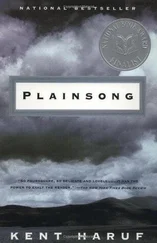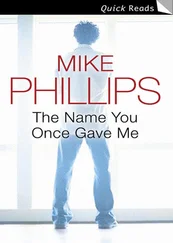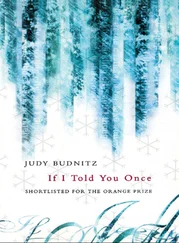Kent Haruf - Where You Once Belonged
Здесь есть возможность читать онлайн «Kent Haruf - Where You Once Belonged» весь текст электронной книги совершенно бесплатно (целиком полную версию без сокращений). В некоторых случаях можно слушать аудио, скачать через торрент в формате fb2 и присутствует краткое содержание. Год выпуска: 2004, Издательство: Pan MacMillan, Жанр: Современная проза, на английском языке. Описание произведения, (предисловие) а так же отзывы посетителей доступны на портале библиотеки ЛибКат.
- Название:Where You Once Belonged
- Автор:
- Издательство:Pan MacMillan
- Жанр:
- Год:2004
- ISBN:нет данных
- Рейтинг книги:5 / 5. Голосов: 1
-
Избранное:Добавить в избранное
- Отзывы:
-
Ваша оценка:
- 100
- 1
- 2
- 3
- 4
- 5
Where You Once Belonged: краткое содержание, описание и аннотация
Предлагаем к чтению аннотацию, описание, краткое содержание или предисловие (зависит от того, что написал сам автор книги «Where You Once Belonged»). Если вы не нашли необходимую информацию о книге — напишите в комментариях, мы постараемся отыскать её.
Where You Once Belonged — читать онлайн бесплатно полную книгу (весь текст) целиком
Ниже представлен текст книги, разбитый по страницам. Система сохранения места последней прочитанной страницы, позволяет с удобством читать онлайн бесплатно книгу «Where You Once Belonged», без необходимости каждый раз заново искать на чём Вы остановились. Поставьте закладку, и сможете в любой момент перейти на страницу, на которой закончили чтение.
Интервал:
Закладка:
Kent Haruf
Where You Once Belonged
About the Author

KENT HARUF
WHERE YOU
ONCE
BELONGED
Kent Haruf’s The Tie That Binds received a Whiting Foundation Award and a special citation from the PEN/Hemingway Foundation. He is also the author of Plainsong , a finalist for the National Book Award, and Eventide . He lives with his wife, Cathy, in Colorado.
Where You Once Belonged
For three Elizabeths:
Sorel, Whitney, and Chaney
PART ONE
1
In the end Jack Burdette came back to Holt after all. None of us expected it anymore. He had been gone for eight years and no one in Holt had heard anything about him in that time. The police themselves had stopped looking for him. They had traced his movements to California, but after he had entered Los Angeles they had lost him and finally they had given it up. Thus in the fall of 1985, so far as anyone in Holt knew, Burdette was still there. He was still in California and we had almost forgotten him.
Then late on a Saturday afternoon at the beginning of November he appeared in Holt once more.
He was driving a red Cadillac now. It was not a new car; he had bought it soon after he left town when he still had money to spend. Nevertheless it was still flashy, the kind of automobile you might expect a Denver pimp or a just-made oil millionaire in Casper, Wyoming, would drive. There was all that red paint — the color of a raw bruise, say, or the vivid smear of a woman’s lipstick on a Saturday night — and all of it was shining, gleaming under the sun, looking as though he had spent an entire day polishing it for our benefit.
He drove this car, this affront and outrage to the entire town if we had known in the beginning who was driving it, drove it through Holt on Highway 34 and then turned around at the city limits and came back and drove north up Main Street past the water tower and the bank and the post office and the Holt Theater, and finally parked it on Main Street in the middle of town and didn’t get out. Instead, for the rest of that afternoon and on into the evening, he sat there as if he were waiting for something: waiting and smoking cigarettes and spitting out through the rolled-down side window onto the pavement and only now and then shifting in the front seat to relieve the pressure of the steering wheel against his gut. I suppose he thought someone in town would say something to him. But no one did. Not at first. They did not even seem to recognize him. For at least an hour his former townsmen merely passed along in front of him, shopping, going in and out of the stores on Saturday afternoon as usual, without once stopping to speak or even to pause very long to look at the Cadillac to see who owned it.
Eventually someone did think to call the sheriff, though. This was Ralph Bird, who owns the Men’s Store.
About four-thirty that afternoon Ralph Bird looked out through the front display window of the Men’s Store and noticed the red Cadillac across the street in front of the tavern. He did not think much about it at first. Pheasant season had begun and there were strange vehicles in town anyway. Thirty minutes later, though, when he looked across the street a second time he saw that the car was still there, with the man he had seen earlier still sitting alone in the front seat, and that bothered him. He began to study the car. There was nothing familiar about it. But after a minute or two he believed he detected something recognizable about the man inside. He turned and called to his wife at the back of the store.
“Hey,” he said. “Come out here a minute.”
“What do you want?”
“Come out here.”
Hannah Bird came out from the storeroom where she’d been working among the ranks of wooden shelves. She was a tall thin woman with hair dyed a dark shade of red. She stood in the doorway brushing the hair out of her eyes. “What do you want?” she said. “I’m trying to get these shoe boxes put away.”
“Look at this,” Bird said.
“At what?”
“This car. See that guy inside?”
She walked to the front of the store. “I see him.”
“What do you think about him?”
“I don’t think anything about him.”
“Keep looking.”
She looked out through the display window again. Presently while she watched, the bloated-looking man in the front seat of the shiny car turned his head to spit and now she could see the side of his face. Hannah Bird recognized him at once.
“Now don’t you do anything, Ralph,” she said. “You leave that man alone.”
“Sure,” Bird said. “I thought it was him.”
“But don’t you bother him. You don’t have any idea what that man might do.”
“He still owes me money.”
“I don’t care. You let the police handle this.”
Ralph Bird didn’t listen to her. His wife put her hand on his arm as if she meant to control him, to hold him there by force, but he brushed her hand away as though it were no more than store lint. He opened the door and stepped outside.
“Ralph,” she cried. “Ralph. You come back here, Ralph.”
Along the street it had begun to grow chill and raw. The mercury lights had come on at the street corners and there was a little breeze starting up along the pavement. Bird looked up and down Main Street; it was nearly empty of people; then he stepped off the curb and crossed the street toward Burdette’s red Cadillac. When he reached it he stopped for a moment to study the plates. The plates showed that the car had been licensed in California. Then he moved along the side toward the driver’s door. He peered in. Burdette was staring back at him through the open window.
But Burdette looked bad now. In the eight years since Bird or any one of us had seen him he’d changed for the worse. He was fat now, obese; he was sloppy and excessive; his head had grown bald and the flesh hung on him like suet. “It was like,” Bird would say later, “like for eight years he’d been feeding on cream pie and pork steak and lately he hadn’t fed at all.” Still it was Jack Burdette.
“You son of a bitch,” Bird said. “What are you doing back here?”
“That you, Bird?”
“Yeah. It’s me.”
“I seen you in the mirror. Only I had about decided you wasn’t going to speak to me. I thought you just wanted to admire this car.”
“I’ll speak to you,” Bird said. “I’ll speak to Bud Sealy too.”
Burdette stared at Bird, then he laughed once, loud, harsh. So his laugh hadn’t changed at all; it was the same sudden explosion that everyone remembered.
“That’s right,” Bird told him. “Go ahead. Enjoy it. You still got a few minutes.”
“Why’s that? Because you already told Bud Sealy I was here?”
“No. Because I’m going to.”
“Go ahead, then. I ain’t going nowhere. And you can tell Bud—” Burdette seemed to think. He spat once more out the window into the street, this time onto the pavement at Bird’s feet. “You can tell him I’m looking forward to seeing him.”
“You son of a bitch,” Bird said. “You goddamn—”
Then abruptly Ralph Bird stopped talking. He moved away from the car and began to walk up the street toward the corner. He turned once and looked back, then he began to trot. By the time he reached the corner he was running. At Second Street he turned and ran east toward the courthouse a block away. He ran on, his arms pumping, a small dapper middle-aged man in suit and tie, running along the dark sidewalk past the storefronts and the brick facades, and then across Albany Street and up the courthouse steps.
Читать дальшеИнтервал:
Закладка:
Похожие книги на «Where You Once Belonged»
Представляем Вашему вниманию похожие книги на «Where You Once Belonged» списком для выбора. Мы отобрали схожую по названию и смыслу литературу в надежде предоставить читателям больше вариантов отыскать новые, интересные, ещё непрочитанные произведения.
Обсуждение, отзывы о книге «Where You Once Belonged» и просто собственные мнения читателей. Оставьте ваши комментарии, напишите, что Вы думаете о произведении, его смысле или главных героях. Укажите что конкретно понравилось, а что нет, и почему Вы так считаете.
